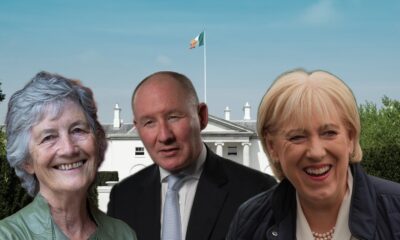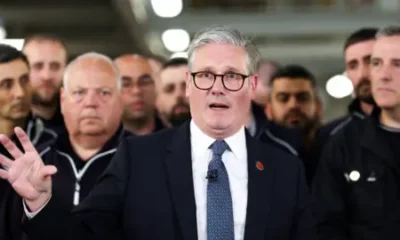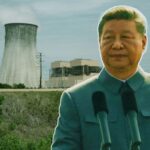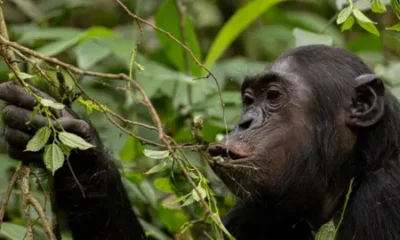Breaking News
China does targets differently to the West – and it may be just what the world needs
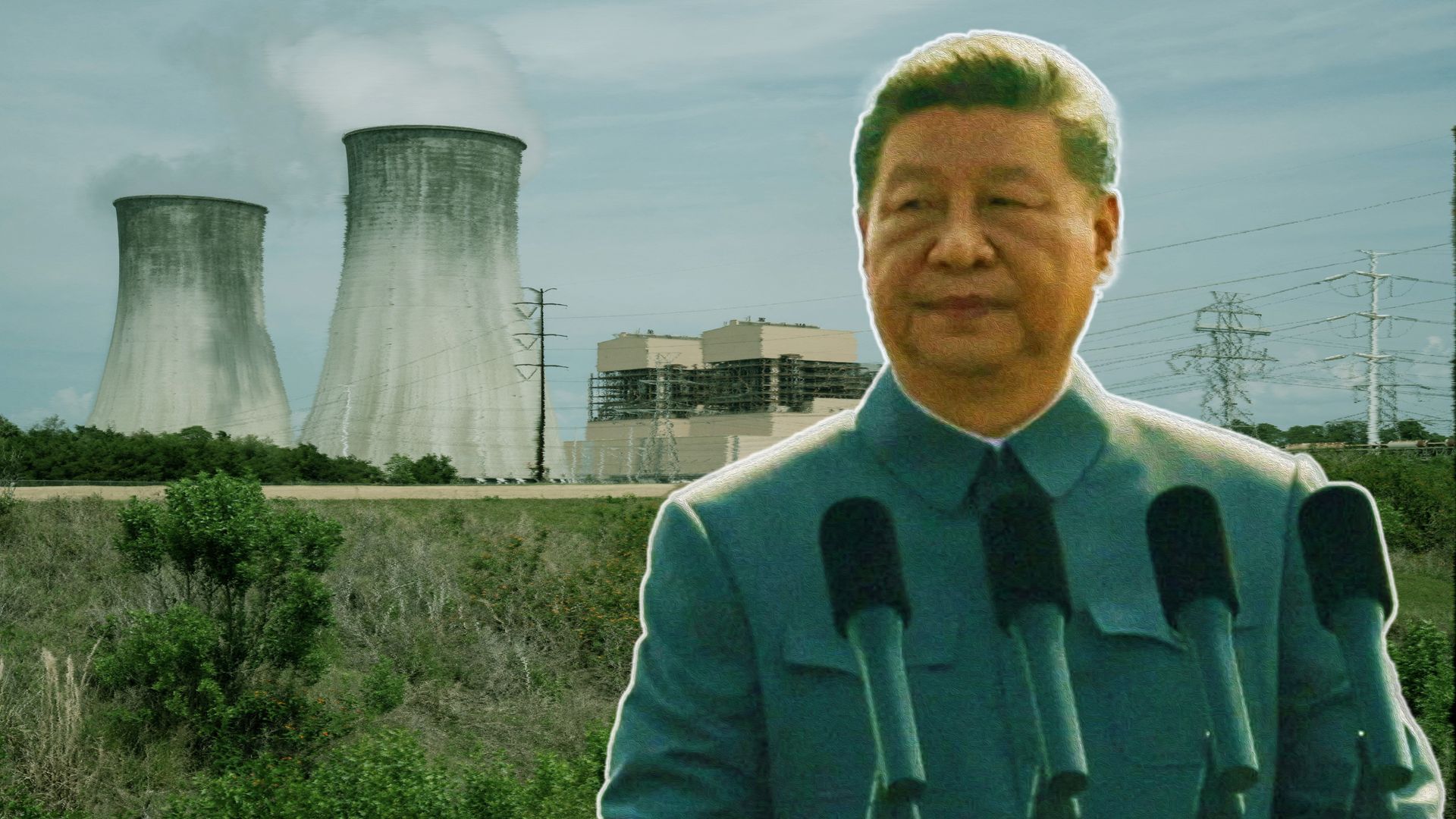
Read more on post .
There is something peculiar about the Chinese government that makes its targets very different to those in countries like Britain.
That quirk gives analysts some hope after it’s “timid” announcement on the green transition – and as Donald Trump yesterday condemned climate change as a “hoax”.
The good news is that China has, for the first time, made a commitment to cut its greenhouse gas emissions. It’s a landmark moment.
In a video statement to the UN in New York, President Xi Jinping vowed China would cut emissions by 7-10% by 2035, while “striving to do better”.
But it is still “critically short” of the roughly 30% believed to be necessary from the world’s biggest greenhouse gas polluter and clean tech superpower, analysts said.
Juan Manuel Santos, former president of Colombia and chair of The Elders, a group of global leaders founded by Nelson Mandela, said: “China’s latest climate target is too timid given the country’s extraordinary record on clean energy – both at home and through its green partnerships with emerging economies.”
Read more: Super typhoon hits China
China also chose not to say when it thinks its emissions will peak – allowing plenty of time for them to keep rising before they then fall.
But here’s why all is not lost – far from it.
In the West, targets are often aspirational. They are knowingly optimistic, sometimes wildly so, because the purpose isn’t necessarily to hit them.
Instead, they are designed to provide some certainty to investors, energy companies, local authorities and so on about where the country is headed, stimulating them all to kick into gear.
‘Taking targets seriously’
The Chinese work differently. In fact, they have a record over under promising and over delivering on climate targets.
Why?
“In China’s top-down political system, setting and evaluating targets is a key means through which the central government manages the country,” says Zhe Yao from Greenpeace Asia.
“As a result, there is a strong political culture of taking targets seriously. This mentality means policymakers usually take a realistic approach to setting targets rather than treating them as aspirations.”
Just look at their wind and solar rollout: meeting a target of 1,200GW by 2030 six years early.
Today they pledged to more than double today’s capacity of around 1,400GW to 3,600GW by 2035 – rates many countries can only dream of. There are other targets China has missed – such as to “strictly control” coal power – but still that record gives analysts hope.
Another ray of light is the fact that it was delivered by Xi himself – this is perceived as the commitment being more serious than if it was delivered by anyone else.
And “striving to better” sounds weasley, but suggests they aim to overachieve, and again should be taken more seriously from President Xi than perhaps we would from other leaders.
US and EU fall short
China is far from alone in disappointing with its pledge, made as a part of its latest five-year climate plan (known as nationally determined contribution or NDC), something all countries are doing this year as per the Paris Agreement.
The US government under Trump has ditched climate action altogether. The EU, which thinks of itself as ambitious, failed to come up with its own plan on time, effectively coming to the UN this week with an “I Owe You” instead.
With other leaders faltering, there was less heat on Beijing to step up.
Even the 10% reduction in emissions will “still put the world on a pathway to catastrophic climate impacts” says Kate Logan, director of the China Climate Hub at the Asia Society Policy Institute.
So let’s hope this target will not just be hot air, but another one for cautious China to overachieve.
Breaking News
Candidates begin canvassing in Presidential Election
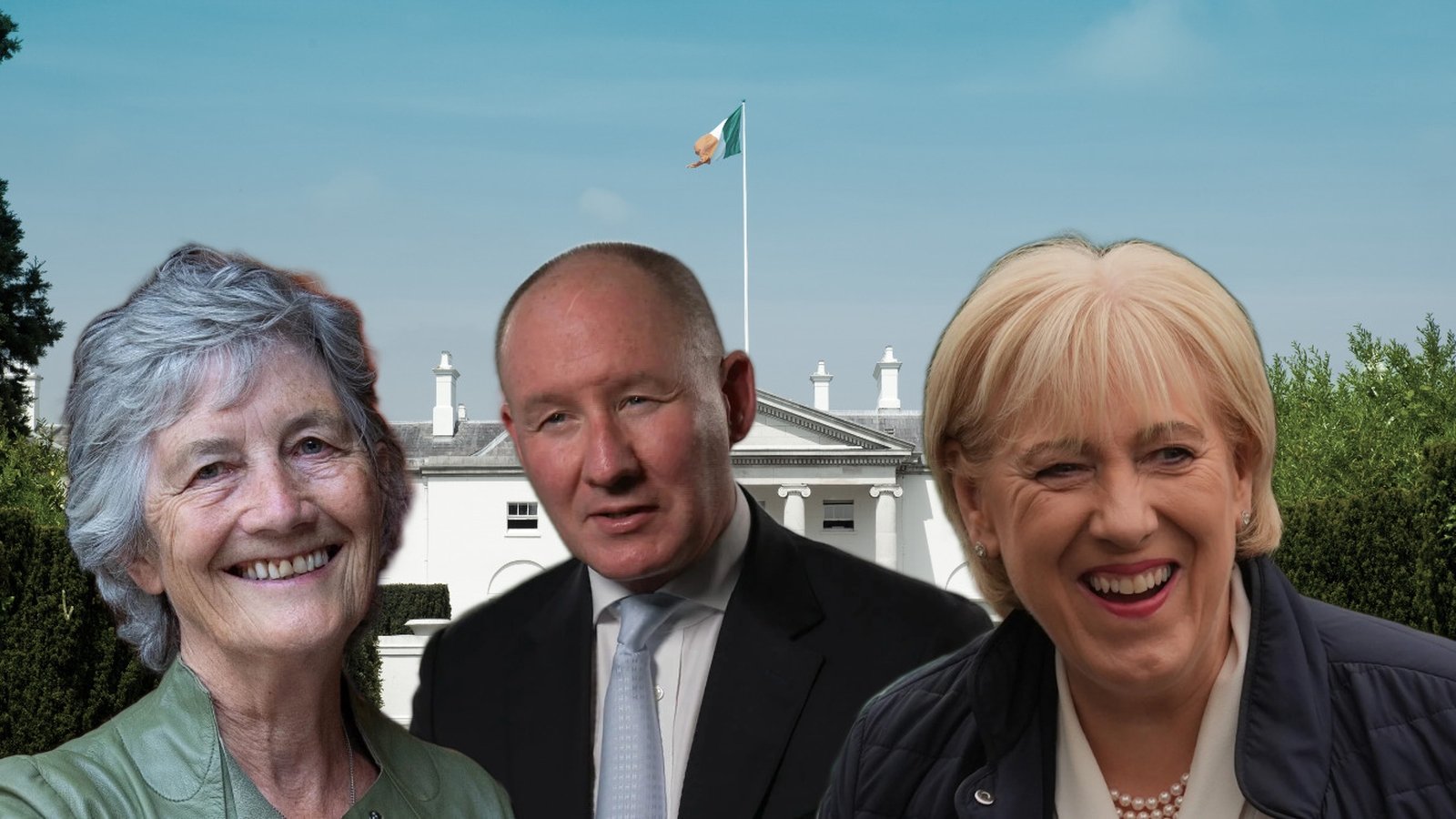
Read more on post.
In the first full day of campaigning in the Presidential Election, the three candidates will be canvassing in Dublin, Laois, and Limerick.
Independent candidate Catherine Connolly, who is backed by the left-leaning parties in the Oireachtas, will attend a meeting of the Dáil Public Accounts Committee this morning in her capacity as a TD for Galway West.
Afterwards, and as a presidential candidate, she will be campaigning in the capital, including at a rally in Harold’s Cross this evening.
The Fine Gael candidate Heather Humphreys will start her campaign today in Laois, with a lunchtime canvass in Portlaoise.
Later, she will be canvassing in Limerick City before attending a Fine Gael rally in Patrickswell.
Earlier, Ms Humphreys said housing supply is “the biggest challenge” facing the country and “very tough”, but stopped short of agreeing with outgoing President Michael D Higgins that it has become a “disaster”.
The Fianna Fáil candidate Jim Gavin will be in the capital this morning, with a canvass in Blackrock and Dún Laoghaire.
He also will be joined by party colleagues at other campaign events in south Dublin.
Barrister Maria Steen failed to secure enough support to join the race, securing 18 Oireachtas nominations when 20 was required.
After her campaign ended yesterday morning, Ms Steen told the media that “rarely has the political consensus seemed more oppressive or detached from the public’s wishes.”
However, Taoiseach Micheál Martin rejected suggestions that the failure of Ms Steen to secure a nomination was “anti-democratic”.
Voting takes place on 24 October. It is the smallest field in a Presidential Election since 1990.
Breaking News
It’s got Peaky Blinders swagger, says House of Guinness writer

Read more on post.
Yasmin RufoBBC News
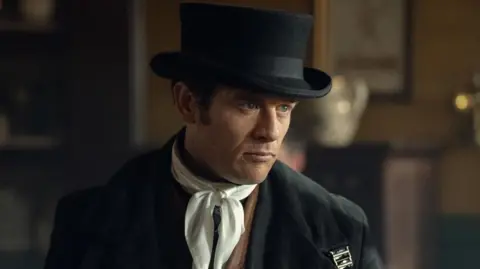 Netflix
NetflixTaking family power struggles and turning them into global television sensations is becoming something of a habit for screenwriter Steven Knight.
With Peaky Blinders, he took a Birmingham street gang and made them a cultural force. Now, Knight is betting on another dynasty, one rooted in brewing, wealth and legacy.
House of Guinness, which launches on Netflix on Thursday, tells the story of Ireland’s most famous family name at the moment of crisis – Sir Benjamin Guinness has died and his four children, each concealing dark secrets, are left to steer the brewery’s fate.
Knight says when he looked into the real-life Guinness family, “it was immediate that I realised this is an incredible drama and story”.
He was struck by “the characters, events and how it all intermeshed with history and what was going on at the time”.
While the story is based on real events, it is a drama first and foremost. Fact and fiction have been blended together, but Knight says he doesn’t see those two things as mutually exclusive, as “it’s often the true events that are the least believable”.
“Some of the historical events are so amazing and unexpected you wouldn’t make them up yourself,” he tells the BBC.
One of the imagined figures in the Netflix drama is Sean Rafferty, the brewery’s foreman, played by Happy Valley star James Norton, whose fate becomes entangled with the dynasty’s power struggles.
Norton says his character is an “amalgamation of lots of different people” who existed at the time, adding that he found researching into the history of Guinness “remarkable and fascinating”.
The 40-year-old explains that as soon as he read the script he was ready to sign up to the show.
“I read the first four scripts all at once and it was a no-brainer,” he says. “Almost every scene starts with Rafferty’s silhouette in a window in a cloud of smoke and I thought ‘sign me up, that’s really cool’.”
Most of the actors in the series were Irish, something Norton says added a level of pressure when it came to perfecting the accent and admits he was “so scared on the first day”.
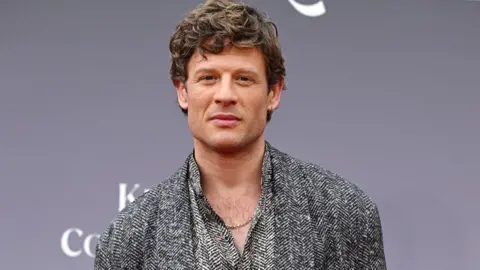 Getty Images
Getty Images“You work really hard at the beginning and once you crack the first big dialogue scene and have spoken the first lines there’s no going back,” he explains.
The first scene Norton filmed was one where he punches three disloyal workers at the Guinness factory. He says he used the line ‘I see your three names written in black ash up there’ to get back into the accent for subsequent scenes.
‘Once in a lifetime experience’
Starring alongside Norton is Irish actress Danielle Galligan who plays Lady Olivia, an aristocrat who marries into the Guinness family. After the British monarch, she was the richest woman in Britain and Ireland at the time.
The actress says she loved researching her character and understanding what she was really like.
“She’s such a firecracker in the series and then I actually found out she was also a very solitary and silent woman who painted lots of watercolours,” Galligan explains.
“She was a woman who had everything and yet was still looking for something. Learning about her gave me a sense of her lack of fulfilment and added another layer to her.”
Galligan says it was very special to tell an Irish story and “to do it on a global scale is a once-in-a-lifetime kind of experience”.
Joining Galligan is Niamh McCormack, whose character is part of the rebellious Fenian Brotherhood, and Jack Gleeson, who is best known for playing Joffrey Baratheon in Game of Thrones.
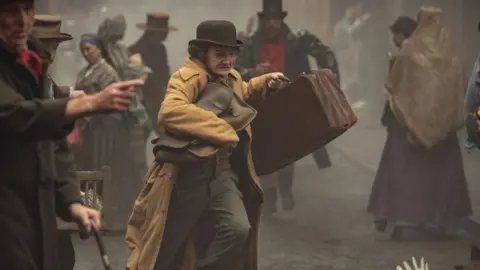 Netflix
NetflixMcCormack and Gleeson say they are proud to be part of a series that puts Ireland on the map, but admit that with pride comes pressure over how it will be received by audiences at home.
“It’s always a factor but I tried not to think about it too much,” Gleeson says. “You want things to be represented well but also hopefully people know not to take it too seriously as a historical document.”
Knight was less worried about what audiences would think, admitting: “I should care but I don’t – if you worry what people are going to think you can’t really do anything as you’d be trying to please too many different people.”
House of Guinness has already been compared to the likes of Succession, The Crown and Peaky Blinders but Knight is indifferent about how people compare it.
“People say every project is a cross between stuff and I don’t take that too seriously, I’m confident that this is its own thing,” he says.
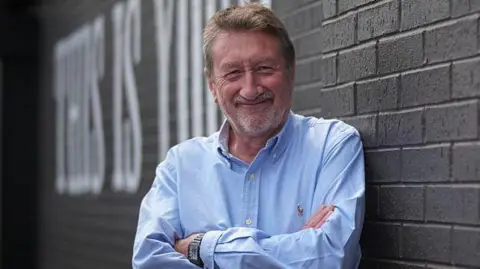 Getty Images
Getty ImagesFor Norton, who is also currently starring in BBC’s historical drama King & Conqueror, to be compared to such successful shows is a positive.
“To be in the same breath as those dynasty shows is great and I’m happy if we’re included among that group,” he says. Gleeson agrees and explains that this drama “takes the best bits of the rest and adds its own magic and essence”.
Knight does admit that there are many similarities between House of Guinness and Peaky Blinders and the shows have influenced each other as the 66-year-old has recently finished working on the Peaky Blinder film, The Immortal Man, which will see Cillian Murphy reprise his role as Birmingham gangster Tommy Shelby.
“Sometimes parallels are pointed out that I don’t even have a clue about,” he laughs. “But there are a lot of similarities – the family, it has the same energy, humour and swagger.”
 BBC Studios
BBC StudiosKnight is also involved in writing the new James Bond film, which he previously told the BBC had always been on his bucket list.
The movie will be directed by Dune’s Denis Villeneuve and is currently in development and being overseen by Amazon MGM Studios after long-serving masterminds Barbara Broccoli and Michael G Wilson stood down in February.
When asked a question about Bond, Knight smiles and says he’s not able to talk about it but does admit that after the success of several of his shows, he feels a greater freedom to write more creatively.
And with House of Guinness, he hopes to have used that freedom to make this latest dynasty saga a success in its own right.
Breaking News
UK boosts pandemic readiness with new vaccine factory
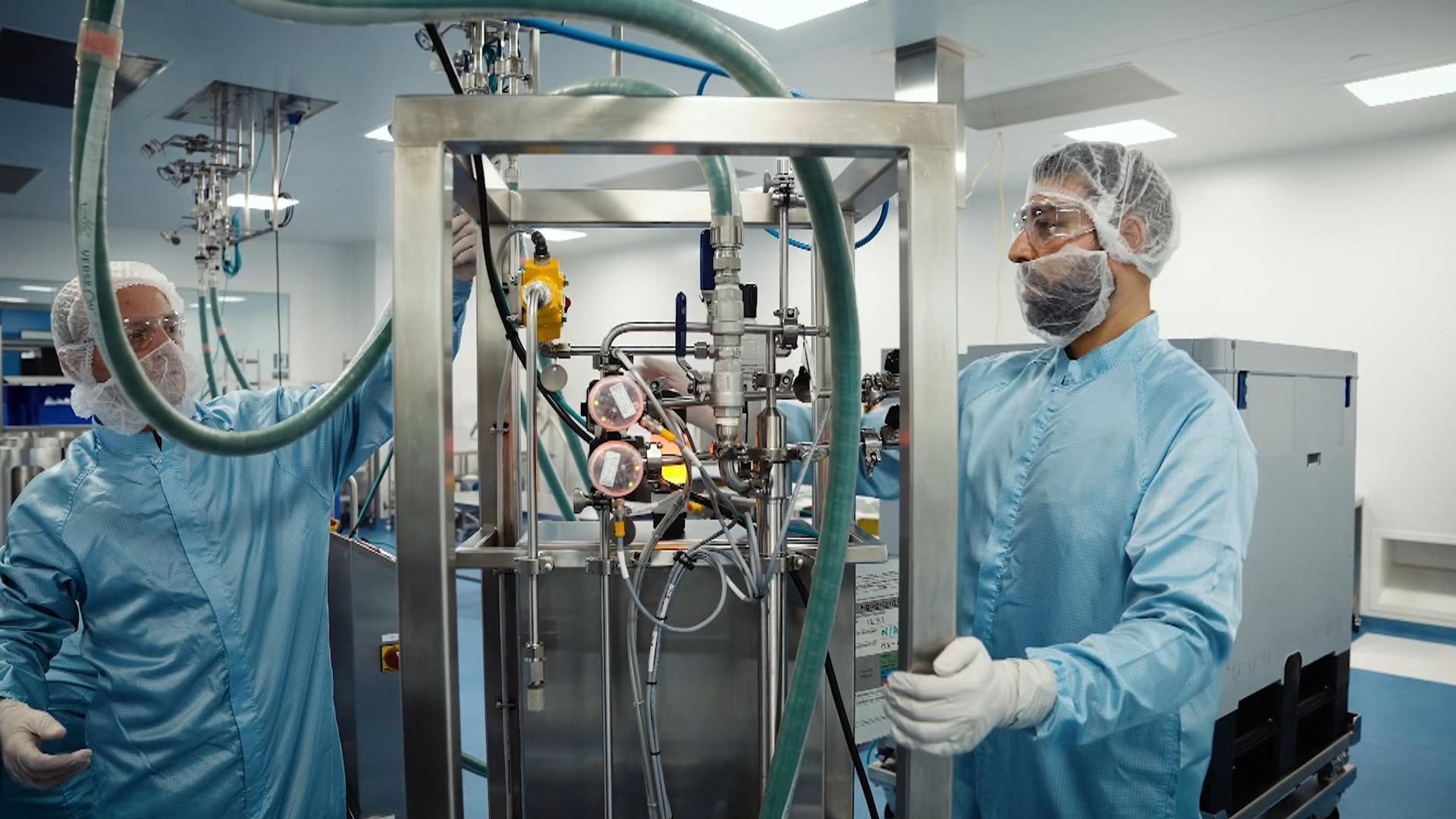
Read more on post .
A US vaccine firm has opened the first mRNA manufacturing plant in the UK, against a backdrop of increasing anti-jab rhetoric back home.
The new facility outside Oxford is part of a £1bn investment in the UK by Moderna, which specialises in mRNA.
The novel vaccine technology delivered some of the most effective and fastest-to-develop jabs during the COVID pandemic.
Several pharma companies, including Germany’s leading mRNA pioneer BioNTech, are now racing to develop new therapies.
Moderna says the plant will produce up to 100 million doses of its existing vaccine products each year. It has also been designed to scale-up production to 250 million doses a year in the event of a new disease outbreak.
“God-forbid, if there is another pandemic, we can switch the facility any day,” said Moderna CEO Stephane Bancel.
The UK investment deal was agreed by the previous government, but the plant’s opening is welcome relief for the current one.
In recent weeks, four major pharmaceutical companies have halted planned investments in the UK following disputes over drug pricing and profitability in the UK.
‘A great statement’
It also promises to restore domestic vaccine manufacturing capability in the UK, the lack of which was exposed when dangerous supply interruptions threatened the early COVID response.
“It’s a really fast way of getting new vaccines discovered,” said Lord Patrick Vallance, former chief scientist and now science minister.
“It’s also a great statement of confidence in the UK that [Moderna has] chosen to base themselves here.”
The Trump effect
The mRNA molecule is the same used by our cells to order the production of new proteins, and allows vaccines to be produced using just the genetic code of a virus or other biological target.
Moderna’s investment decision pre-dated Donald Trump’s return to the White House, but the Moderna CEO said its operation in the UK – a country that “still believes in vaccination” – may pay dividends if anti-vaccine rhetoric translates into a lack of demand for its products in the US.
“If there is less appetite by governments around the world, including in the US, to use vaccines, we might invest less in vaccines,” said Mr Bancel.
“We have to invest where there’s a demand for our products.”
Read more: All health claims made by Trump – and what experts say
The UK presents other attractions for the company which has suffered substantial losses as demand for its COVID vaccine has fallen.
It’s betting that leading UK universities and a large patient population will make for successful clinical trials.
The company has ongoing NHS trials of new jabs against seasonal flu, a combination COVID and flu vaccine, cancer vaccines and mRNA therapies for two inherited childhood diseases.
Moderna says it is now the largest private commercial sponsor of clinical trials in the UK.
-
Culture2 days ago
Taylor Swift’s new cinema outing generates more than €12million in just 24 hours
-
Politics2 days ago
European Parliament snubs Orbán with vote to shield Italian MEP from Hungarian arrest
-
Culture1 day ago
Milan Fashion Week 2025: Unmissable shows and Giorgio Armani in mind
-
Opinion2 days ago
AI Is Pointless If It Doesn’t Boost Productivity
-
Culture3 days ago
Marvel stars Mark Ruffalo and Pedro Pascal stand up for Jimmy Kimmel as Disney boycott intensifies
-
Business15 hours ago
Households to be offered energy bill changes, but unlikely to lead to savings
-
Environment1 week ago
Chimps drinking a lager a day in ripe fruit, study finds
-
Culture2 days ago
From Koniaków to Paris: how traditional Polish crocheting is captivating high fashion







